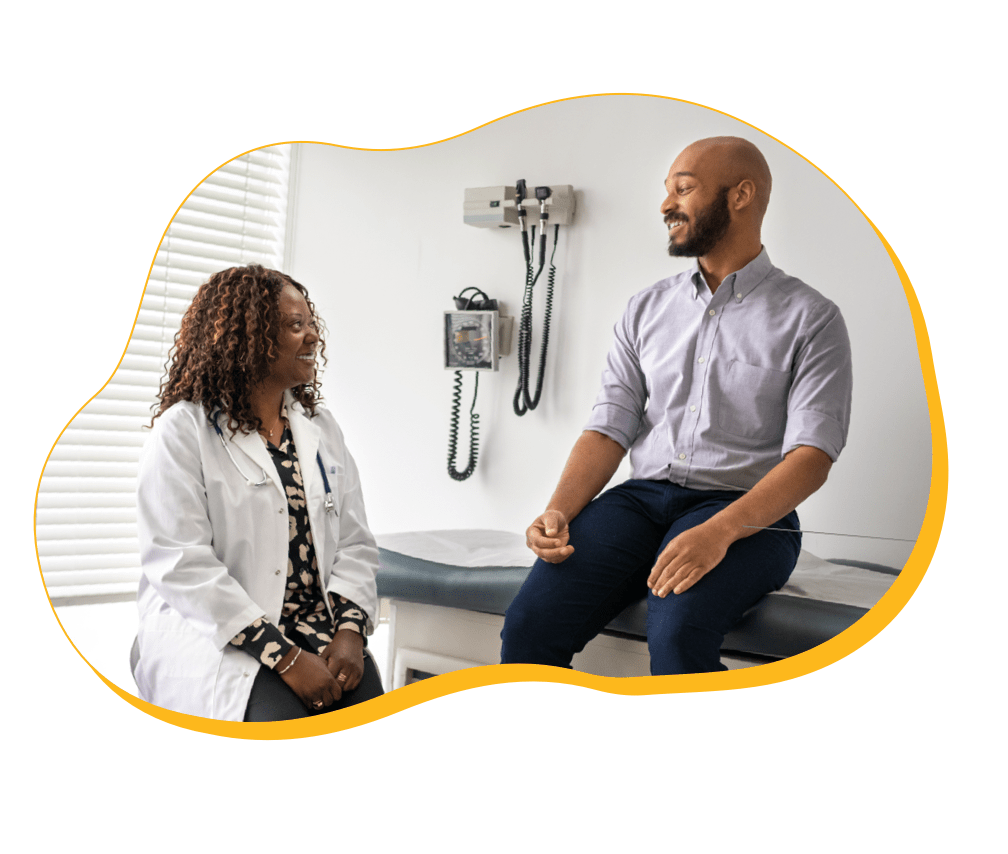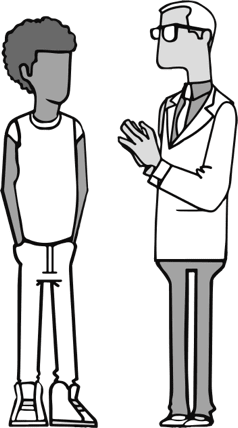This Gilead website is intended for US audiences only.
Navigating an HIV diagnosis can feel overwhelming. You may experience a range of emotions, such as sadness, hopelessness, or even anger. Give yourself time to process your emotions.
Following a diagnosis, it’s also important to talk to a healthcare provider about the available treatment options. Today’s HIV treatments can help you live a longer, healthier life and can help to lower your viral load. Starting HIV treatment and finding support can help you get off to a good start. Know that there are resources that may help with emotional or mental health support during this time.
Explore Resources
Model portrayals

We have defined a few key terms that can be helpful to know as you are starting with treatment.

Learn more about starting or restarting treatment and download the Treatment Guide for more information.
People featured are compensated by Gilead.
Shared decision-making is a way for you and your healthcare provider to work to make decisions about your HIV care that are right for you.
We asked a few healthcare providers what’s important to them in the relationship they have with the people they treat.
DALLAS GREEN, PA: Involving the patient in making a decision for a treatment plan is very important. I like to ask my patients, “What are your goals out of treatment? What do you want your treatment to look like?
ORLANDO HARRIS, NP, PhD: If we’re in a situation where something is not optimal or something is not right, I want to create the space so you, as a patient, you’re empowered to actually have that conversation with me.
HADRIAN HOLDER, MD: Ultimately, I want them to be undetectable and dealing with their diagnosis enough that they can advocate for themselves.
MARTHA PATRICIA RODRIGUEZ, PA: Hi, hello. I’m going to be your HIV provider. Together, we’re going to select an HIV regimen. I just want to explain to you that this is teamwork. It’s not just my work or your work. We’re a team. I’m going to ask you some questions that they might sound funny or intrusive, but I want to know what you do for a living, I want to know a little bit of your schedule, if you have to take care of other family members, if you have transportation issues, because that is very important for me in order to choose something.
MARTHA PATRICIA RODRIGUEZ, PA: I don’t want this to be a condition that they look in the mirror and they see HIV. I want they look themself in a mirror and be themselves, and if they want to go to school, if they want to start a family, if they want to relocate, like, I don’t want this to be like something that makes them not fulfill their dreams.
FEATURED VIDEO

Working together with your healthcare provider is key to finding a treatment that’s right for you. In this video, healthcare providers share what’s important to them in their partnership with the people they treat.
After testing positive for HIV, the first step is to talk to a healthcare provider—even if you don’t feel sick. Seeking medical care and starting HIV treatment right away can help you get off to a good start with important health benefits.
The information collected during your first visit is used to help make decisions about an HIV treatment for you. Your first visit with a healthcare provider may include:

Model portrayals
Starting treatment right away can offer important health benefits. Sticking with treatment as prescribed is an important way to live healthier with HIV because it can help lower your viral load to undetectable, which means there is so little virus in the blood that a lab test can’t measure it.
Current research shows that as long as you stay undetectable, you can’t pass HIV through sex. It’s scientifically proven that a person with HIV who is on treatment as prescribed and stays undetectable cannot transmit HIV to their sexual partners.

No questions are off-limits, and it’s great to come prepared. Here are some questions to copy and save for your visit.
Take a screenshot or copy these questions to your clipboard


For more information about HIV, please visit the National Institutes of Health or the U.S. Centers for Disease Control and Prevention.
There are also many resources out there to help you manage your HIV diagnosis and stay encouraged through your treatment journey, such as a healthcare provider finder, financial support, and mental health services.
EXPLORE RESOURCES

